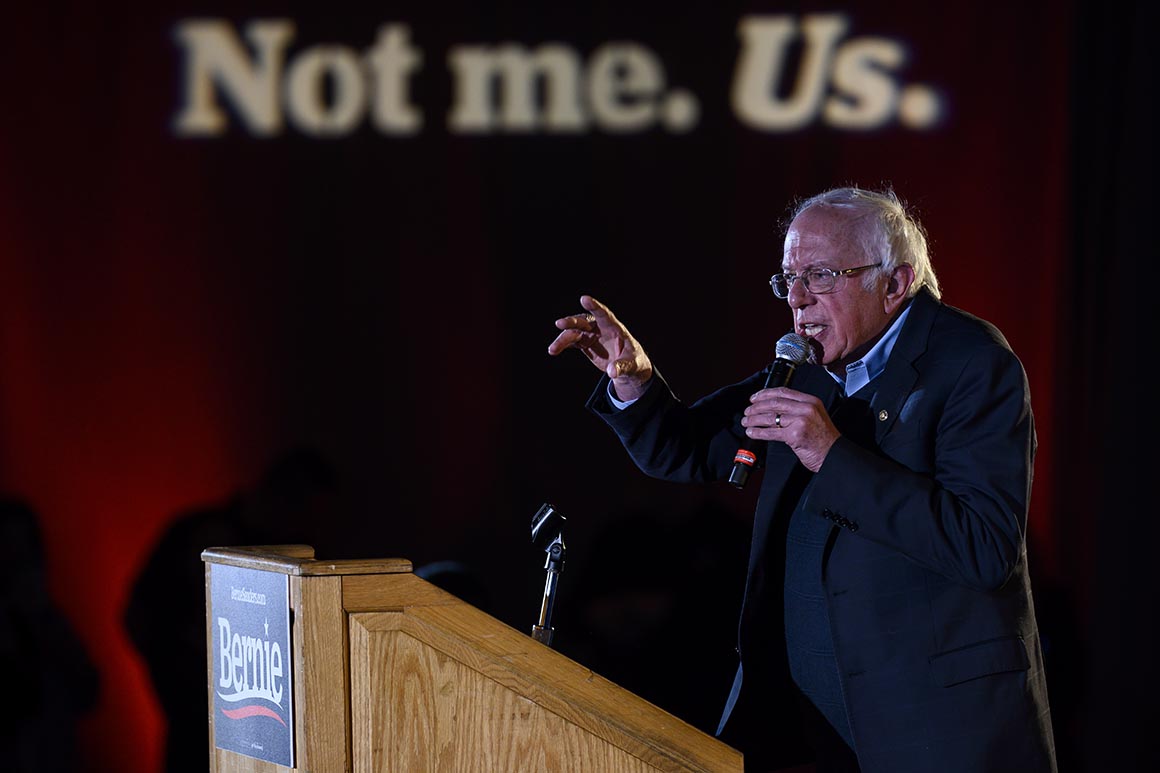
And in the wake of Sanders’ New Hampshire primary win, the Republican State Leadership Committee, which focuses on state legislative races, has been running digital ads asking whether down-ballot Democrats in more than a half-dozen states are “feeling burned yet” — a take on the Sanders mantra, “Feel the Bern.”
The early activity bolsters claims by Sanders’ Democratic rivals that he would be a nightmare for Democrats on the ballot next year. The senator’s supporters say Republicans will find a way to demonize whomever the nominee is, and Sanders, at least, brings a big upside with the enthusiasm among young voters he inspires.
But Republicans do seem especially eager to face off against Sanders.
Austin Chambers, the RSLC president, said there wasn’t “anybody who doesn’t recognize that Republicans have lost ground in the suburbs in the last few election cycles.„ But the 78-year-old Sanders, he said, would give Republicans an opening to win those voters back.
It “takes a good foil“ to turn the tide back in favor of the GOP, Chambers argued. „It takes someone who you can contrast with and say, ‘This is my vision, and this is theirs. Which one do you support?’ And Bernie Sanders offers that foil up and down the ballot for Republicans and it’s one that we’re going to take advantage of.”
The White House is embracing the strategy in its bid to maintain control of the Senate and flip the House. Republicans have a razor-thin Senate majority.
“This is Bernie Sanders’ and AOC’s party now,” said White House counselor Kellyanne Conway, referring to progressive icon Alexandria Ocasio-Cortez. “Bernie is not just the socialist standard-bearer; he may well be the presidential nominee.”
The offensive provides a window into the emerging Republican 2020 strategy. Fifteen months after suffering sweeping losses in the midterm elections, the party is moving aggressively to make inroads with the voters who deserted them.
The effort is especially pronounced in right-of-center battlegrounds that have drifted away from the party under Trump’s tenure. McSally, who is running for reelection in a traditionally Republican state that is increasingly regarded as competitive, has derided her opponent as the “51st vote for all of Bernie’s wildest Soviet-style fantasies.”
Her newest commercial is based on Kelly’s contention that he would support whomever wins the Democratic nomination. The spot zeroes in on Sanders’ support for tax hikes and for providing government-funded health insurance to undocumented immigrants — positions that McSally’s team contends are anathema to suburbanites they’re trying to woo.
It’s a tough sell: Kelly and his wife, former Democratic Rep. Gabby Giffords, who was seriously injured in a 2011 shooting, are a popular couple in the state. But Republicans believe that tying Kelly to Sanders can erode his standing.
In North Carolina, Tillis has invoked Sanders repeatedly in recent weeks. After Wednesday’s Democratic debate, Tillis took to Facebook to note that Sanders had “doubled down on his embrace of socialism,” and to remind voters that his Democratic rivals had “pledged to support their party’s nominee.” Republicans are especially worried about the suburbs in the state.
Republicans say the blueprint is grounded in focus groups and private polling showing female and college-educated suburban voters turned off by the Sanders-backed Medicare for All. One Republican group active in state-level races found Sanders underwater in New Hampshire, where a potentially competitive governor’s race will be taking place this year.
Former Rep. Tom Davis (R-Va.), who held a seat outside of D.C. for more than a decade, said affluent suburbanites are repelled by Sanders. While they may be repelled by Trump personally, Davis argued, many of them see Sanders as posing an immediate threat to their livelihoods.
“Right now, they’re voting culture because their economic interests are taken care of,” said Davis, a past National Republican Congressional Committee chairman. “All of a sudden, a Bernie race goes right after their affluence — it puts it in jeopardy.”
Endangered House Democrats have taken steps to distance themselves from Sanders in recent weeks. Rep. Anthony Brindisi, who represents a central New York seat that Trump won by double digits in 2016, has said he won’t back Sanders if he’s the nominee. Rep. Conor Lamb, who won his suburban Pittsburgh seat in a closely watched 2018 special election, has said “it would be really hard” for Sanders to win his Republican-leaning district.
“If the nominee is Sanders, Democrats in districts that lean towards Trump are going to have to focus on their own brand and disassociate with a narrative that they’re running on a socialist platform,” said former New York Rep. Steve Israel, an ex-Democratic Congressional Campaign Committee chairman.
Still, there is no guarantee the Republican strategy will work. To some, the approach has echoes of the 2016 election, when Democrats tied an array of House Republican candidates to Trump. The offensive, which came in the days following the release of the lewd “Access Hollywood” tape, was designed to sink the fortunes of Republicans running in swing areas.
But Democrats ended up netting just six House seats that year, far short of the number they needed to win the majority.
Some Democrats contend it will be the president — more than anyone the GOP turns into a foil — who will drive general election turnout.
“Republicans,” said Democratic Legislative Campaign Committee President Jessica Post, “are doing everything to try and distract from the fact that they have a huge liability at the top of the ballot: President Trump.”
Source: politico.com
See more here: news365.stream






